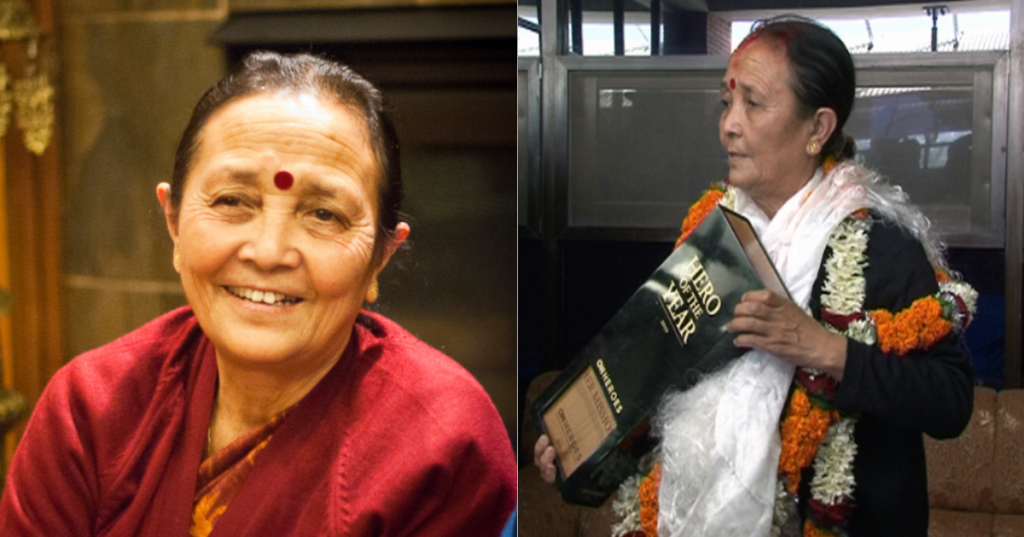Human Trafficking, News
The “Mother Teresa” Of Nepal Has Rescued 18,000 Sex Trafficking Victims

In the 1990s, Nepali native Anuradha Koirala would walk by Kathmandu’s Pashupatinath Temple every morning. And every morning she would meet the women who were begging on those streets. When she struck up a conversation with them, she realized that they were all survivors of gender-based violence. This hit home, because she had dealt with the physical and emotional trauma at the hands of an abusive ex-husband. That moment of connection is what set her on the path to becoming Nepal’s Mother Teresa.
Koirala grew up with the teachings of Mother Teresa and knew that her purpose in life was to be in service of the needy. In the 1990s, she had already been working as a teacher for 20 years. But she then decided to step into a more substantial role of protecting vulnerable women and children.
She started only with 8 women, whom she educated about women’s empowerment and encouraged them to stop begging. But her work quickly grew. By 1993, she founded the non-profit Maiti Nepal and focused her attention on a massive problem in Nepal: sex trafficking.
The high rates of poverty and illiteracy in the country made it feeding grounds for traffickers. They would show families the dreams of employment or money while hiding the gruesome reality of sex trafficking from them. Girls and women would thus be taken from underprivileged sections of Nepal and sold into sex slavery in India. Koirala devised a way to start rescuing these women.
Her intervention is more than necessary. The 1,750km border between Nepal and India is open and porous. Reports have shown that human trafficking across that border has risen by 500% since 2013, with more than 23,000 women and girls trafficked in 2016 alone. NGOs in the field estimate that that number could quickly rise to 40,000 in another year.
Maiti Nepal works with their local law enforcement to rescue operations across 26 different points on the India-Nepal Border. It also runs 11 transit homes that shelter recently trafficked women, as their families shun most. The scope of the organization’s also expanded over the years: now it runs awareness campaigns, empowerment programs, and vocational training initiatives for survivors.
Koirala wants to ensure that these women can lead independent, productive lives in society. To that effect, the organization employs former victims to conduct searches at border transit points and has trained them to identify possible trafficking victims. It has recently also started a cafe in Kathmandu where previous victims act as cashiers, chefs, and waitresses.
Maiti Nepal also runs three prevention homes for at-risk girls to educate them about trafficking’s dangers. It caters to over 1,000 children, running two hospices for children and women with HIV/AIDs, and one school. Koirala has also helped catch trafficking criminals, assisting in the prosecution of more than 700 traffickers.
Koirala has won 38 national as well as international awards for her work, including India’s prestigious civilian award, the Padma Shri, and CNN’s Hero of the Year in 2010. Over the years, Maiti Nepal has rescued more than 18,000 women and children. Today, at the age of 70, Nepal’s Mother Teresa continues working relentlessly for this cause and does not plan to give up anytime soon.
